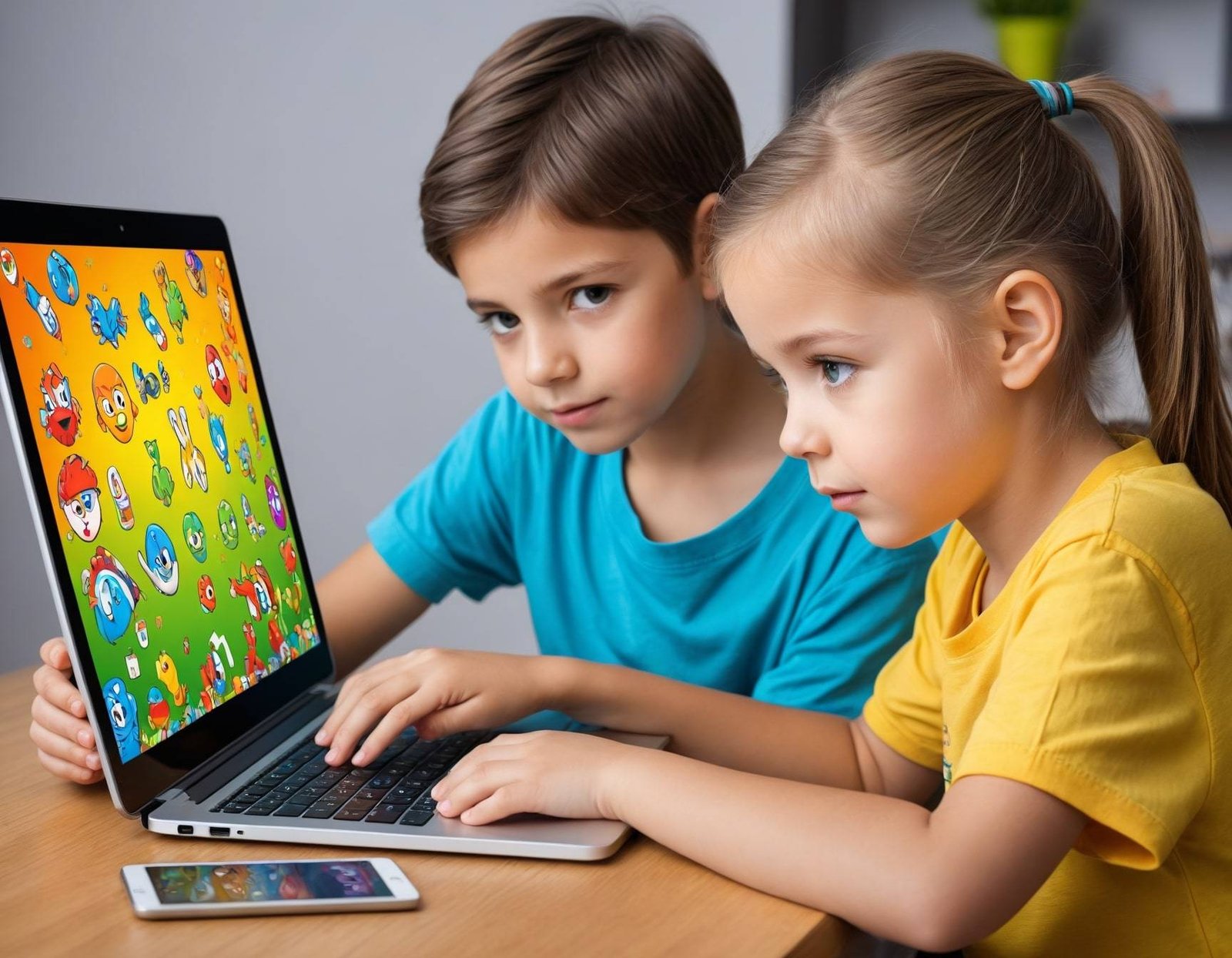1st June 2025
Screen Time & Study Time: Striking the Right Balance for Student Success
Student Well-being, Academic Success, Digital Wellness, Parenting Tips, Education
Digital screens have seamlessly woven themselves into the daily routines of children in
today’s technology-driven era. From interactive lessons in digital classrooms to
entertainment and social connection, technology offers a wealth of opportunities. However,
navigating the balance between screen time and study time has become a crucial challenge for
students and parents alike. At Delhi World Public School, Greater Noida, we believe in
fostering digital wellness – equipping our students with the skills to leverage technology
productively while maintaining a healthy, balanced lifestyle.
The Double-Edged Sword of Screen Time
Technology, when applied, proves to be an invaluable resource for academic growth. It offers
access to limitless information, facilitates collaborative projects, and provides
interactive learning experiences. This purposeful screen time can enhance understanding,
boost creativity, and develop essential 21st-century skills.
However, excessive screen time, particularly for non-academic purposes, carries risks:
- Eye Strain and Physical Discomfort: Spending long hours on screens can
result in strained eyes, persistent headaches, and slouched posture, all of which can
impact your overall comfort and well-being.
- Sleep Disturbances: The blue light emitted by screens can disrupt
melatonin production, making it harder to fall asleep and impacting overall student
productivity.
- Reduced Focus and Attention Span: Constant notifications and the allure
of endless content can diminish concentration and impact the ability to focus on
academic tasks.
- Mental Fatigue and Anxiety: Over-engagement with digital media can lead
to burnout, social comparison, and increased anxiety.
- Impact on Social Skills: When screen use becomes excessive, it can
reduce face-to-face engagement, possibly obstructing the natural development of key
social and emotional abilities.
Striking the right balance is therefore not just about managing time, but about promoting
holistic well-being and effective study habits.
Strategies for Striking the Right Balance
At DWPS Greater Noida, we collaborate closely with parents to help students achieve a
well-rounded balance that nurtures both their academic and personal development. Here are
key strategies:
1. Establish Clear Guidelines and Routines
Consistency is key. Together with your child, devise a routine for each day or week that
consciously carves out specific windows for schoolwork and enjoyable screen activities.
- Set Clear Limits: Define how much time can be spent on entertainment
screens (e.g., gaming, social media) versus educational screen time.
- Designate Screen-Free Zones/Times: Make meal times, an hour before
bedtime, and dedicated study zones completely screen-free. Bedrooms are best kept free
of screens to promote better sleep hygiene.
- Prioritize Study: Ensure academic responsibilities are completed before
leisure screen time begins.
2. Encourage Purposeful Screen Time
Not all screen time is equal. Guide your child towards engaging with educational and
productive digital content.
- Educational Apps & Resources: Utilize high-quality learning apps,
online research tools, and virtual educational tours that align with their interests and
curriculum.
- Content Creation: Encourage activities like coding, digital art, video
editing, or creating presentations, which foster creativity and problem-solving.
- Online Collaboration: Leverage digital platforms for group projects and
academic discussions, promoting teamwork and communication.
3. Foster Effective Study Habits (Digital & Offline)
Teach your child strategies that maximize learning efficiency, whether on or off-screen.
- Time Management Techniques: Introduce methods like the Pomodoro
Technique (25 minutes of focused study, 5-minute break) to maintain focus and prevent
burnout.
- Minimize Digital Distractions: During study hours, turn off
non-essential notifications on devices. Consider using website blockers for distracting
sites.
- Embrace Offline Learning: Encourage reading physical books, handwriting
notes (proven to improve memory retention), and engaging in hands-on activities.
- Refresh Your Vision: Every 20 minutes, take a short pause to look at
something around 20 feet away for 20 seconds. This quick exercise gives your eyes the
break they need and helps prevent screen-related fatigue.
4. Model Healthy Digital Habits
Children learn by example. Parents and educators play a crucial role in demonstrating
responsible technology use.
- Be Mindful of Your Own Use: Show your child that you can disconnect
from screens and engage in other activities.
- Prioritize Face-to-Face Interaction: Dedicate quality screen-free time
for family conversations, games, and outdoor activities.
- Discuss Digital Etiquette: Talk openly about responsible online
behavior, cyberbullying, and data privacy.
5. Promote a Holistic Lifestyle
A balanced life extends beyond just screen and study..
- Physical Activity: Ensure daily time for outdoor play, sports, or other
physical activities to counteract sedentary screen time.
- Adequate Sleep: Prioritize 8-10 hours of quality sleep, crucial for
concentration and well-being.
- Hobbies and Interests: Encourage engaging in diverse hobbies that don't
involve screens, fostering creativity and personal growth.
Conclusion
Our Goal should not be to eliminate screens, but to help in cultivating a mind with a
balanced approach to the use of Digital Screens. At Delhi World Public School, Greater
Noida, we equip our students with the skills to harness technology's power for learning and
growth, while simultaneously instilling the discipline for a healthy, well-rounded life. By
striking the right screen time and study time balance , we empower our students to be
academically successful, digitally literate, and resilient individuals ready for the
challenges and opportunities of tomorrow.
